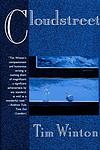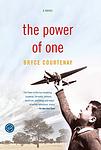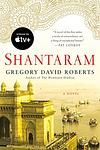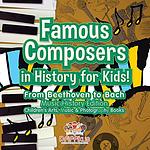The Greatest Czech, Australian "Fiction" Books Since 1950
Click to learn how this list is calculated.
This list represents a comprehensive and trusted collection of the greatest books. Developed through a specialized algorithm, it brings together 300 'best of' book lists to form a definitive guide to the world's most acclaimed books. For those interested in how these books are chosen, additional details can be found on the rankings page.
Genres
Countries
Date Range
Reading Statistics
Click the button below to see how many of these books you've read!
Download
If you're interested in downloading this list as a CSV file for use in a spreadsheet application, you can easily do so by clicking the button below. Please note that to ensure a manageable file size and faster download, the CSV will include details for only the first 500 books.
Download-
1. The Unbearable Lightness of Being by Milan Kundera
Set against the backdrop of the Prague Spring period of Czechoslovak history, the novel explores the philosophical concept of Nietzsche's eternal return through the intertwined lives of four characters: a womanizing surgeon, his intellectual wife, his naïve mistress, and her stoic lover. The narrative delves into their personal struggles with lightness and heaviness, freedom and fate, love and betrayal, and the complexities of human relationships, all while offering a profound meditation on the nature of existence and the paradoxes of life.
-
2. Franz Kafka: The Complete Stories by Franz Kafka
This collection of stories offers a comprehensive look at the work of a renowned author, known for his surreal and often unsettling depictions of modern life. The stories explore themes of existential anxiety, guilt, and absurdity, often through narratives in which ordinary people face extraordinary, inexplicable circumstances. The collection showcases the author's unique style and his profound influence on 20th-century literature.
-
3. The Thorn Birds by Colleen McCullough
"The Thorn Birds" is a sweeping family saga that spans three generations of the Cleary family, set against the backdrop of the Australian outback. It focuses on the forbidden love between the beautiful Meggie Cleary and the family's priest, Father Ralph de Bricassart. The novel explores themes of love, religion, and ambition, as Meggie and Ralph struggle with their feelings for each other and the choices they must make.
-
4. Voss by Patrick White
Set in 19th-century Australia, the novel follows a German explorer, Voss, as he leads a doomed expedition into the outback. Parallel to this, Voss develops a romantic relationship with Laura Trevelyan, a young woman he meets before his departure. Despite their physical separation, their spiritual and emotional connection deepens as Voss's journey becomes increasingly perilous. The narrative explores themes of obsession, the human condition, and the dichotomy between civilization and wilderness.
-
5. The Book of Laughter and Forgetting by Milan Kundera
This novel is a blend of fiction, autobiography, and philosophical musings that explores the nature of forgetting, the power of laughter, and the struggle for personal and political freedom. Set against the backdrop of the political turmoil in Czechoslovakia in the 20th century, it follows the interconnected stories of various characters, including a man who is expelled from the Communist Party, a young woman in love with a man whose father was a political prisoner, and a couple who flee to America. Throughout, the book delves into the ways in which personal and collective memories shape identity and history.
-
6. Oscar and Lucinda by Peter Carey
"Oscar and Lucinda" is a novel that tells the story of two unconventional individuals, Oscar and Lucinda, who meet on a ship going to Australia in the mid-19th century. Oscar, a young English clergyman, and Lucinda, a teenage Australian heiress, bond over their shared love of gambling. Their mutual obsession leads to a high-stakes wager that will have lasting consequences for both of them. The novel explores themes of love, faith, and obsession against the backdrop of Victorian-era England and Australia.
-
7. True History of the Kelly Gang by Peter Carey
This historical novel is a fictionalized account of the life of Australian outlaw Ned Kelly, told in the form of a journal written to his daughter. The narrative explores Kelly's life from childhood, his family's struggles with poverty and the law, his involvement in horse thievery, and his eventual formation of the Kelly Gang. The story culminates with the gang's infamous standoff with the police at Glenrowan, providing a humanizing perspective on a figure often portrayed as a ruthless criminal.
-
8. The Transit of Venus by Shirley Hazzard
The novel follows the lives of two orphaned Australian sisters, Caroline and Grace Bell, who move to England in the post-World War II era. The story revolves around their relationships, particularly Caroline's complex and often tragic love life. The narrative is filled with themes of love, fate, time, and the intricate complexities of human relationships, all set against the backdrop of significant historical events.
-
9. Cloudstreet by Tim Winton
"Cloudstreet" is a sweeping family saga set in post-World War II Australia, following two families, the Pickles and the Lambs, who come to live together in a large, ramshackle house on Cloud Street over two decades. The story explores their struggles, triumphs, and the ways they are haunted and blessed by a mysterious spiritual presence. The novel is a celebration of endurance, unity, and the many forms of love, set against the backdrop of a changing Australia.
-
10. The Joke by Milan Kundera
"The Joke" follows the life of Ludvik Jahn, a man expelled from the Czechoslovak Communist Party, his university, and the army for a harmless joke he sends in a postcard to a girlfriend. The narrative explores his life before, during, and after his punishment, and his attempts to exact revenge on those who wronged him. Set against the backdrop of the Prague Spring and the Soviet Invasion, the novel delves into the themes of political satire, the absurdity of totalitarianism, and the individual's struggle against an impersonal and oppressive system.
-
11. The Tree of Man by Patrick White
This novel tells the story of Stan Parker, an ordinary and hardworking man living in the Australian outback. The narrative chronicles his life, including his marriage to Amy, the birth of their two children, and the various struggles they face such as financial hardship, natural disasters, and the challenges of rural life. The book provides a deep and introspective look into the human condition, exploring themes of love, death, faith, and the search for meaning.
-
12. The Power of One by Bryce Courtenay
This novel follows the life of a young English boy named Peekay who grows up in South Africa during the 1930s and 1940s. Despite facing bullying, racial segregation, and the hardships of World War II, Peekay remains resilient and determined to follow his dream of becoming a world-class boxer. Along his journey, he encounters various mentors who teach him about survival, love, and the power of one person to make a significant difference in the world.
-
13. Closely Watched Trains by Bohumil Hrabal
"Closely Watched Trains" is a darkly humorous tale set in Nazi-occupied Czechoslovakia during World War II. It follows the life of a young, inexperienced railway worker who is struggling with his sexual awakening while dealing with the harsh realities of war. The novel is a poignant exploration of the absurdity of life, the tragicomedy of human existence, and the power of ordinary people to resist oppression.
-
14. Schindler's Ark by Thomas Keneally
The book is a historical novel based on the true story of a German industrialist who becomes an unlikely humanitarian amid the barbaric Nazi reign. When he witnesses the horrors inflicted upon the Jews, he is moved to save as many as he can by employing them in his factory. His actions, driven by courage and compassion, lead to the salvation of over a thousand Jewish workers from certain death in the Holocaust. The narrative explores themes of morality, survival, and the capacity for good in the face of overwhelming evil, as the protagonist navigates the complexities of war and the human spirit.
-
15. Remembering Babylon by David Malouf
The novel explores the life of a young man who, after being shipwrecked, is raised by Aboriginals in 19th century Australia. After sixteen years, he attempts to reintegrate into European society, but is met with suspicion and hostility due to his adopted culture and lifestyle. The book delves into themes of identity, belonging, and the clash between Aboriginal and European cultures.
-
16. I Served The King Of England by Bohumil Hrabal
"I Served The King Of England" is a captivating novel that follows the life of a young Czech waiter named Ditie, who dreams of becoming a millionaire and serving the highest-ranking clientele. Set against the backdrop of World War II and the Communist regime, the story takes readers on a journey through Ditie's experiences in various hotels and restaurants, his encounters with eccentric characters, and his pursuit of love and success. With humor, wit, and a touch of satire, the book explores themes of ambition, identity, and the impact of historical events on an individual's life.
-
17. A Fringe Of Leaves by Patrick White
Set in the early 19th century, the novel follows the journey of an Englishwoman who survives a shipwreck off the coast of Australia. Stranded on the unfamiliar continent, she is captured by Aboriginal people and experiences a dramatic cultural clash. As she adapts to the indigenous way of life, she undergoes a profound personal transformation, shedding the constraints of her genteel upbringing. Her struggle for survival and the eventual attempt to return to European society challenge her identity and perceptions of civilization, nature, and self, leading to a deep introspection about her place in the world.
-
18. Tirra Lirra By The River by Jessica Anderson
The novel revolves around the introspective journey of Nora Porteous, a woman who, after years of living abroad, returns to her childhood home in Queensland, Australia. As she reflects on her past, Nora grapples with the constraints of her conservative upbringing, her stifling marriage, and her pursuit of personal freedom and artistic expression. The narrative weaves through her memories, exploring themes of self-discovery, the role of women in society, and the search for identity. Through Nora's eyes, the reader experiences the poignant realization that life may not always align with youthful dreams, and that understanding and reconciling one's past is essential for moving forward.
-
19. Shantaram by Gregory David Roberts
The novel follows the life of a convicted Australian bank robber and heroin addict who escapes from prison and flees to India. Settling in the bustling city of Mumbai, he assumes a new identity and immerses himself in the local culture, forming a close bond with the people in a slum. As he navigates his new environment, he becomes entangled in various criminal activities, including running a free health clinic, working for the Bombay mafia, and fighting in Afghanistan. Throughout his journey, he grapples with love, forgiveness, and his quest for redemption, all while exploring themes of good and evil, friendship, and the complexities of the human spirit.
-
20. The Commandant by Jessica Anderson
"The Commandant" is a historical novel that explores the life of Frances Forbes, the wife of Commandant Patrick Logan, who was a penal colony superintendent in Australia during the 19th century. The story, narrated by Frances, provides a detailed account of their life in the colony, including the harsh conditions, the social hierarchy, and the relationships between the convicts, soldiers, and officers. The narrative also delves into Frances' personal life, her loneliness, her relationship with her husband, and her struggle to maintain her sanity amidst the harsh and isolated environment.
-
21. The Children's Bach by Helen Garner
"The Children's Bach" is a captivating novel that explores the complexities of family dynamics and the pursuit of happiness. Set in Melbourne, the story follows a group of interconnected characters as they navigate their relationships, dreams, and disappointments. Through beautiful prose and keen observations, the author delves into themes of love, loss, and the search for meaning in everyday life, creating a poignant and thought-provoking narrative.
-
22. The Engineer of Human Souls by Josef Škvorecký
The novel is a semi-autobiographical narrative of a Czechoslovakian writer who has become a professor at a Canadian university, teaching American literature. The narrative switches between his current life in Canada and his memories of the past in Czechoslovakia, including the Nazi occupation and the Communist regime. The book presents a complex portrayal of the life of an intellectual in exile and the challenges of cultural assimilation, while also exploring themes of love, politics, and the power of literature.
-
23. Death of a Lake by Arthur William Upfield
In "Death of a Lake", a young woman goes missing in the Australian Outback, causing a detective to suspect foul play when a local lake begins to dry up and reveal disturbing secrets. The detective has to navigate treacherous environmental conditions, local superstitions, and a cast of eccentric characters to solve the mystery. As the water levels continue to drop, the tension rises, culminating in a dramatic climax that reveals the truth about the missing woman and the secrets hidden beneath the lake's surface.
-
24. Cutting It Short by Bohumil Hrabal
Set in a small Czech town during the 1920s, the narrative follows the life of a vivacious and free-spirited young woman married to the town's brewery manager. Her playful and unconventional behavior often leads to humorous and sometimes scandalous situations, as she navigates through the social norms and expectations of the time. The story captures the charm and eccentricities of rural life through a series of anecdotes, reflecting on the themes of freedom, tradition, and the joy of the everyday. The protagonist's zest for life and her interactions with the colorful cast of characters create a whimsical and endearing portrait of a community on the brink of modernization.
-
25. Too Loud A Solitude by Bohumil Hrabal
The narrative centers around an elderly man who has spent his life compacting paper and books into bales in a decrepit cellar, using a hydraulic press. Despite the menial nature of his job, he has cultivated a deep love and profound knowledge for literature, philosophy, and art from the books that pass through his hands, many of which he rescues from destruction. The story is a poignant exploration of the power and resilience of the human spirit in the face of a dehumanizing, totalitarian regime, and a meditation on the enduring value of art and the written word. The protagonist's intellectual journey and his resistance to the oppressive forces around him serve as a metaphor for the survival of culture and individuality under oppressive conditions.
Reading Statistics
Click the button below to see how many of these books you've read!
Download
If you're interested in downloading this list as a CSV file for use in a spreadsheet application, you can easily do so by clicking the button below. Please note that to ensure a manageable file size and faster download, the CSV will include details for only the first 500 books.
Download























